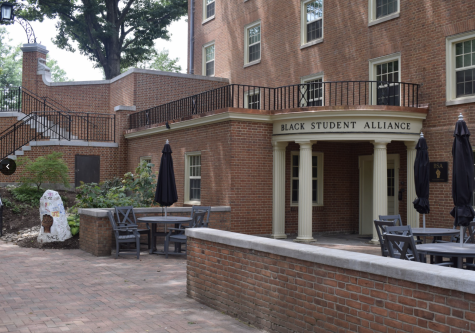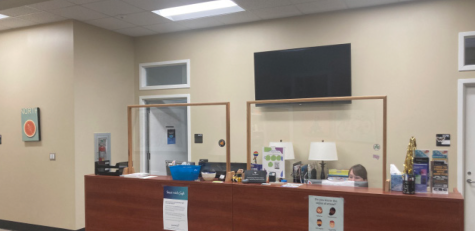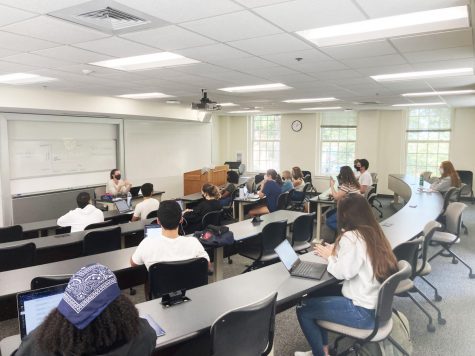Your network is your net worth
Getting to know the professors of Wake Forest can enrich your personal and professional life
Courtesy of the Office of Personal and Career Development
Networking is vital to life after college.
August 18, 2022
Professors can often appear intimidating. You have probably seen depictions of them pacing in front of a crowded lecture hall with 500 students, cold-calling on a whim, a grin on their face when someone can’t answer their question about an obscure detail on the forty-second page of the reading.
Luckily for you, none of these professors (to our knowledge) are to be found at Wake Forest — and no 500-person classes will be either. In fact, the average class size is right around 24 students. That might make you feel a little more pressure once you realize that there is more of a chance that you’ll get called on, but you shouldn’t be worried about that.
The key difference between those larger classes and the smaller ones is how much everyone engages in the class. At Wake Forest, you can’t be invisible. To the more quiet, contemplative student, that sounds horrifying, but most professors recognize that class engagement is more than just speaking aloud. Since you can’t hide in a sea of faces, your professors can tell whether or not you are listening or following along with the material.
This level of accountability is probably one of the most refining aspects of the Wake Forest education. The faculty care to know their students and see them become all they can be. However, the student-teacher relationship can only develop so much during class sessions. This is why professors open their doors each week to office hours.
Please, go to office hours. This is how you let your professors know you and how you know your professors. You can learn about their research and professional experience, which in its own right is incredibly interesting, but will also pay dividends in the future when graduation approaches.
Professors can also play an important role after you graduate from Wake Forest, because unlike getting into college, the key to starting your future career likely won’t be determined by a placement exam. Instead, it’s determined by a variety of factors including your performance in college, your passion for the job and, perhaps most importantly, who you know.
In the working world, employers will get in trouble if they hire someone who isn’t efficient and impactful, so they go to someone they trust, who usually has already done the job, in order to determine who they should and shouldn’t hire.
This someone can often turn out to be a professor that you will take a class with; a well-respected individual who still has connections and knows their way around the industry that is the subject of their study.
Here are some tips to help you network at Wake Forest and beyond:
1. Discover what makes school worthwhile.
If you are in a class, learning about a mathematical formula, or a historical account, there is often something driving that process. Once you find out why you enjoy doing what you are good at, you will become set on a future career path, and the questions about it will come to you.
2. Reach out and spend quality time with potential references.
Get coffee or a meal with your professor or mentor; go on a walk with them and ask questions. Share your aspirations, curiosities and passions about your future career and professional interests.
3. Collaborate with them.
As an undergraduate, and even as an underclassman, you will not regret taking advantage of learning opportunities with your professors, whether this be a lab, a case study, or other form or research or professional venture.
4. Don’t be afraid to ask for help.
The reason why professors work is to teach you information about their field and prepare you for the working world. At Wake Forest, you’ll find that professors are often more than willing to do whatever they can to help you achieve your goals – and that includes writing you a reference letter.
Wake Forest has the “Good Will Hunting” type of professors. For those of you who haven’t seen the movie, a prodigy named Will works as a janitor at MIT until he is discovered by an esteemed math professor who recognizes his potential and pushes him to realize it for himself. Will is also driven by another character, Sean Maguire, a therapist who is a fitting embodiment of many Wake Forest professors’ properties and particularities.
In the movie, Maguire becomes a brutally honest yet empathetic companion for Will. Professors share these qualities and the determination to steer their students towards a bright future, and at Wake Forest, all it takes to start this relationship is reaching out and asking for help.
























